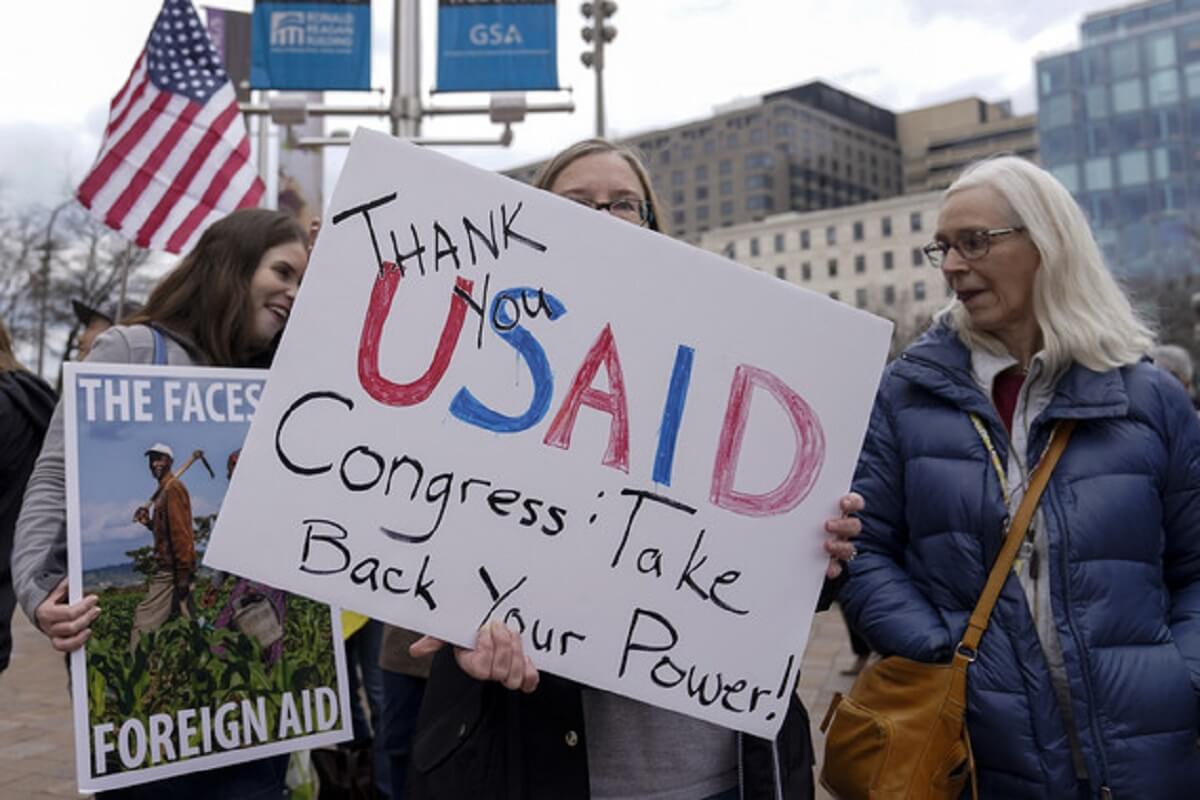Trump Aides Circulate Plan for Complete Revamp of Foreign Aid Programs
NAHAL TOOSI and DANIEL LIPPMAN | 02 April 2025
The proposal provides new details on how the administration plans to overhaul USAID — and what programs it expects to eliminate.
Some Trump administration officials have crafted a proposal to restructure the U.S. international aid and development architecture, making it leaner, more focused and better positioned to take on China.
— Changing the name of the U.S. Agency for International Development to the U.S. Agency for International Humanitarian Assistance; severely curbing its focus to issues such as global health, food security and disaster response; and embedding it within the State Department.
— Placing the Millennium Challenge Corporation and the U.S. Trade and Development Agency under the auspices of the U.S. International Development Finance Corporation. The combined entity would focus on promoting private sector investment, especially in areas such as infrastructure, energy and technology. The document says the new approach would be a powerful counterweight to China’s Belt and Road Initiative, which Beijing has used to gain economic and diplomatic footholds in many countries.
— Moving all, or virtually all, “politically oriented” programs that the Trump administration may wish to pursue under the State Department. This includes promoting democracy and religious freedom, empowering women and fighting human trafficking. Many of these efforts already exist under the State Department, but it’s possible that similar efforts at USAID or other agencies and departments could be moved to State.
It was not immediately clear whether Secretary of State Marco Rubio or other senior Trump administration officials have signed off on the proposal, which has been circulating in State Department and USAID circles. The proposal acknowledges that some changes, such as placing one agency under another, likely will need congressional authorization.
But much of the overall vision appears to match many of President Donald Trump’s priorities.
That includes finding ways to improve U.S. access to energy sources and engaging in a more transactional foreign policy, one that expects other countries to offer the U.S. something in exchange for its help.
Spokespeople for the State Department did not immediately respond to a request for comment.
Plenty of U.S. officials, analysts and others have long criticized how Washington handles foreign aid, and there have been efforts in the past to increase the role played by the MCC, the DFC and other entities that try to leverage the private sector.
But getting those changes through Congress has been challenging, and deciding, for instance, what counts as a country that is strategically important enough to invest in is not a straightforward process.
The proposal says existing U.S. aid and development programming is “inefficient and fragmented” and made the mistake of engaging “in every sector in every country,” with questionable results at best.
A better approach, the plan says, would be to “foster peace and stability in regions critical to U.S. interests, catalyze economic opportunities that support American businesses and consumers, and mitigate global threats such as pandemic diseases.”
It is particularly dismissive of U.S. investments in countries where the leaders are not committed to helping their people or which have become reliant on the U.S. aid instead of weaning themselves off it.
The proposal touches on the fact that the Trump administration, aided by Elon Musk’s Department of Government Efficiency, has essentially dismantled USAID as an agency and many of its and other foreign aid programs.
But it casts that as an opportunity to reshape the future U.S. approach to aid and development.
It also indicates that many of the programs that have been cut or frozen since Trump took office could be revitalized. That includes programs aimed at preventing infectious diseases or providing food. The medications and food products for those programs often come from American companies or farmers.
The proposal stresses that aid programs should have end dates and their success measured carefully. Among other ideas, it suggests using blockchain technology to help track funds and ensure accountability.
Nahal Toosi is POLITICO’s senior foreign affairs correspondent.
Daniel Lippman is a White House and Washington reporter at POLITICO.
This article was originally published on POLITICO.
Views in this article are author’s own and do not necessarily reflect CGS policy.
